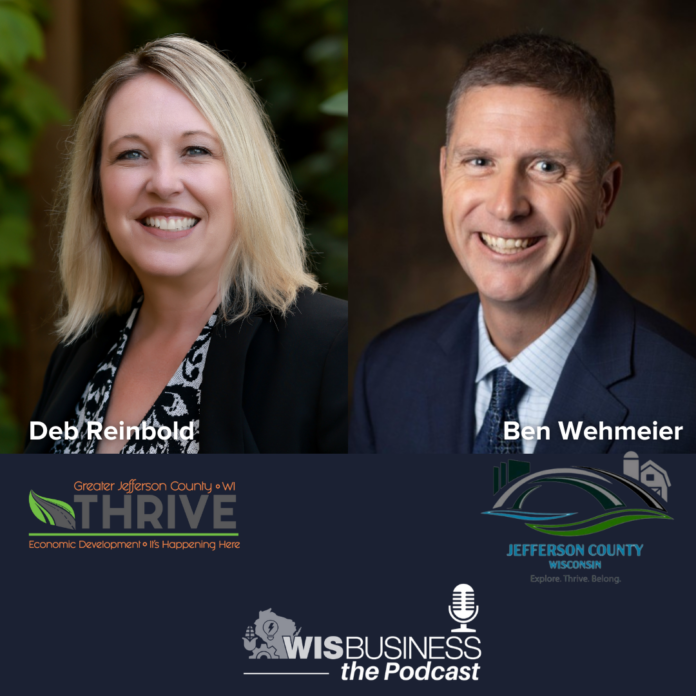This week’s episode of “WisBusiness: the Podcast” is with Jefferson County Administrator Ben Wehmeier and Deb Reinbold, president of Thrive Economic Development.
The podcast focuses on economic development in the county and the Madison-Milwaukee corridor more broadly, which Wehmeier calls “the crossroads of the state.” The area’s key industries include agribusiness, advanced manufacturing and food and beverage production, as well as biomedical sciences, he said.
He highlights a number of major investment projects happening in the area, including a $560 million plant being built in the county by soy sauce maker Kikkoman.
“Our board thought it was a great strategic location for a company like this to bring forward that investment,” he said. “So working with the city, working with WEDC, that project came to fruition and they’re in the midst of building that right now.”
Meanwhile, Nestle Purina is investing at least $195 million to build out a factory nearby, though Wehmeier expects that total to be higher as the project proceeds.
Reinbold shares details on Thrive Economic Development, a private entity that supports economic development work for the county, with a focus on attracting, retaining and expanding business as well as workforce, housing and other issues.
“I think that there’s additional opportunities with the growth of these businesses within the county, that means that we’re getting additional supply chain as well,” she said, pointing to efforts to connect the companies with local farmers as one example.
Wehmeier underlines the importance of utility access for landing these projects, as well as efforts to boost housing development in the region to support the growing regional workforce. The county has a local development fund offering gap financing through revolving loans, which now has nearly $9.5 million available, he said.
Reinbold added a number of housing developments are in the pipeline for the area.
“We’ve got a lot of interest, and actually we created the fund with support of WEDC,” she said. “They offered us a capacity building grant of $50,000, and that helped us to get a lot of the legal fees and some of the consulting fees covered as well, so we could create this program.”
Listen to the podcast below, sponsored by UW-Madison:






